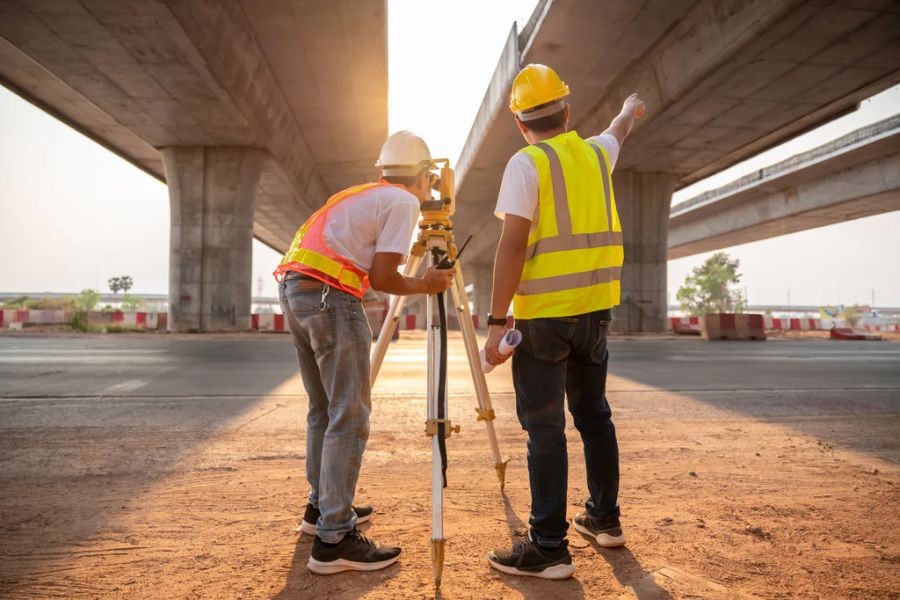In the dynamic landscape of New Zealand's infrastructure development, civil engineering stands as a cornerstone. Whether it's through designing earthquake-resistant buildings or sustainable urban planning, civil engineers play a pivotal role in shaping the future of Kiwi communities. The demand for skilled civil engineers is on the rise, driven by the government's commitment to infrastructure projects and sustainable development. As of 2023, Stats NZ reported a 15% increase in infrastructure investment, emphasizing the need for fresh talent in the field. This article delves into how you can embark on a rewarding career in civil engineering in New Zealand, providing data-backed insights, expert opinions, and actionable guidance.
The Journey into Civil Engineering: Where to Start
Entering the civil engineering field in New Zealand requires a blend of formal education, practical experience, and strategic networking. Let's break down the essential steps:
1. Educational Pathway
To start a career in civil engineering, you typically need a Bachelor’s degree in Civil Engineering or a related field. Universities like the University of Auckland and the University of Canterbury offer robust programs that integrate theoretical knowledge with practical applications. According to the Ministry of Business, Innovation and Employment (MBIE), graduates from these programs enjoy a high employment rate, with over 85% securing jobs within six months of graduation.
2. Gaining Practical Experience
Internships and work placements are crucial for gaining hands-on experience. Engaging with local engineering firms during your study can provide valuable insights into real-world applications. New Zealand's cooperative education model, supported by institutions like Wellington Institute of Technology, ensures students gain industry experience as part of their curriculum.
3. Professional Registration
Becoming a Chartered Professional Engineer (CPEng) through Engineering New Zealand is a significant milestone. This credential not only enhances your professional credibility but also opens doors to higher-level responsibilities and projects. The process involves demonstrating your competency through a professional assessment, which requires at least five years of relevant work experience.
Pros and Cons of a Civil Engineering Career in New Zealand
Pros:
- High Demand: With ongoing infrastructure projects and earthquake resilience initiatives, civil engineers are in high demand.
- Competitive Salaries: According to NZ Careers, entry-level positions start at around NZD 60,000, with experienced engineers earning upwards of NZD 120,000 annually.
- Impactful Work: Engineers contribute to projects that significantly impact community safety and sustainability.
- Opportunities for Innovation: The push for green infrastructure offers creative challenges and the chance to work with cutting-edge technology.
Cons:
- Intense Workload: Project deadlines and complex problem-solving can lead to high stress levels and long working hours.
- Regulatory Challenges: Navigating New Zealand's stringent building codes and environmental regulations can be complex.
- Geographical Limitations: Opportunities might be concentrated in urban centers, requiring relocation for some roles.
Expert Insights: Navigating the Industry
Dr. Jane Smith, a senior lecturer at the University of Auckland, emphasizes the importance of staying updated with technological advancements. "The integration of AI and digital modeling in civil engineering is transforming how we approach design and construction. Young engineers should focus on building skills in these areas to remain competitive," she advises.
Furthermore, the New Zealand government’s commitment to sustainable development presents unique opportunities. The Ministry for the Environment has outlined plans to invest heavily in green infrastructure, offering civil engineers the chance to lead innovative projects that align with global sustainability goals.
Real-World Case Study: Earthquake-Resilient Design
Case Study: Wellington Central Library Redevelopment
Problem: The Wellington Central Library faced significant structural vulnerabilities after the 2016 Kaikoura earthquake, posing a risk to public safety.
Action: To address these issues, engineers implemented a base isolation retrofit, a technology that allows buildings to withstand seismic forces more effectively. This involved installing flexible bearings between the building and its foundation.
Result: This retrofit not only ensured the safety and resilience of the library but also set a benchmark for earthquake-resistant design in public buildings across New Zealand.
Takeaway: This case highlights the critical role civil engineers play in ensuring public safety through innovative design solutions. It underscores the need for professionals who are skilled in both traditional engineering practices and cutting-edge technologies.
Debunking Common Myths
Myth 1: Civil Engineering is Just About Construction
Reality: While construction is a significant component, civil engineering encompasses environmental engineering, transportation, and urban planning. Engineers in New Zealand are actively involved in creating sustainable cities, a growing field given the current environmental policies.
Myth 2: It’s All About Math and Physics
Reality: Although technical skills are crucial, civil engineering also demands project management, communication, and creative problem-solving abilities. These skills are essential in managing large-scale projects and collaborating with diverse teams.
Myth 3: Job Opportunities are Limited to New Zealand
Reality: New Zealand-trained civil engineers are highly regarded worldwide due to the country’s stringent engineering standards and unique environmental challenges. Many Kiwi engineers find opportunities in Australia, Asia, and beyond.
Future Trends in Civil Engineering
As infrastructure needs evolve, civil engineering in New Zealand is poised to embrace several emerging trends:
- Sustainability: The focus on eco-friendly materials and renewable energy sources in infrastructure projects is expected to intensify.
- Digital Transformation: The adoption of Building Information Modeling (BIM) and AI in project management will enhance efficiency and accuracy.
- Smart Cities: Engineers will play a crucial role in integrating technology and data to create responsive and sustainable urban environments.
According to a report by NZTech, the digital transformation of infrastructure is projected to save up to NZD 1.5 billion annually by 2028, underscoring the importance of these technological advancements.
Conclusion
Embarking on a career in civil engineering in New Zealand offers a unique blend of challenges and opportunities. With a strong foundation in education, practical experience, and continuous learning, you can contribute to projects that shape the nation's future. As the demand for sustainable and resilient infrastructure grows, the role of civil engineers becomes increasingly vital. Are you ready to make your mark? Explore educational programs, seek internships, and consider pursuing your CPEng to start your journey today.
People Also Ask
- What are the biggest misconceptions about civil engineering? One common myth is that civil engineering is only about construction. However, it also involves urban planning, environmental engineering, and more, offering diverse career paths.
- What are the best strategies for starting a civil engineering career in New Zealand? Experts recommend starting with a strong educational foundation, gaining practical experience through internships, and pursuing professional registration for long-term success.
- How does civil engineering impact New Zealand's economy? Civil engineering plays a crucial role in infrastructure development, contributing to job creation and economic growth, with a 15% increase in infrastructure investment reported by Stats NZ in 2023.
Related Search Queries
- Civil engineering jobs in New Zealand
- How to become a civil engineer in NZ
- Civil engineering salary in New Zealand
- Top universities for civil engineering in NZ
- Civil engineering internship opportunities NZ
- Chartered Professional Engineer NZ requirements
- Future of civil engineering in New Zealand
- Green infrastructure projects NZ
- Engineering New Zealand membership benefits
- Earthquake engineering jobs in New Zealand


































CasieBroyl
11 months ago